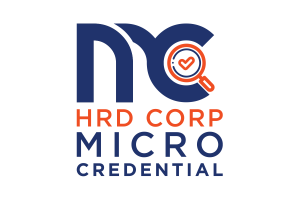HRD Corp micro-credential initiative
HRD Corp micro-credential initiative
Continuous staff development and training is vital for Malaysia’s competitiveness since it puts our industry players in the lead. Industry participants must be progressive “Learning Organisations,” which I describe as “able to learn quicker and greater than the rate and volume of change in the environment, and harness the new learnings to generate better products and services, faster and cheaper than competitors.” HRD Corp’s role shouldn’t be overlooked, but it must operate faster than industry actors.
Let’s examine how Malaysia regulates postsecondary education. Higher education providers (HEPs) are governed by Act 30, Act 174, Act 653, and Act 555, while their qualifications are regulated by Act 679, within the Malaysian Qualifications Framework. Skills training institutions and credentials are controlled under Act 652, inside the NOSS system.
HRD Corp isn’t covered by postsecondary learning and training laws. HRD Corp’s regulatory position under Act 612 as custodian of the levy donated by employers for skills upgrading of their personnel should support rather than impede workforce upskilling, a key lever for our nation’s competitiveness. Facilitation includes developing employer- and training provider-friendly regulations and processes, and avoiding restrictive constraints that could delay upskilling programs, especially when industry players are driven by opportunities that emerge and close without warning. In the 1980s and 1990s, a Scottish university delivering its MBA in Malaysia created a system comparable to micro-credentials. Prospective students can register for full-time study for 12 months, part-time study for 24 months, or just one module at a time and receive a diploma and transcript upon completion.
The RM300 price per employee for each training program will be incorporated in the course structure within the scheme’s maximum limit, according to CEO Shahul Dawood.
“This will ensure that costs aren’t unnecessarily shifted to companies and won’t damage employee training,” he wrote.
Not all HRD Corp-registered programs and courses must be micro-credentialed, he said, adding that a list will be provided soon. Shahul was reacting to calls from Samanta and FMM to remove the fee, arguing that it increased learning expenses and led to fewer people being taught. Shahul said an employer association-led technical working committee will soon be formed to address concerns about the implementation method and fees.
He assured everyone that HRD Corp will continue to consult with employer representatives on policy and technical problems related to its rollout. The initiative aims to improve the quality of HRD Corp-funded training programs and add value for employers and employees by certifying short courses. Only 4.4% (44,932) of 1,028,793 HRD levy-funded training slots were for certification programmes. Few were quality-certified.
At the inauguration event, Datuk Seri M. Saravanan delivered a speech in which he stated that “The HRD Corp Microcredential program supports the ministry’s aim of enabling Malaysian talents to embrace lifelong learning and embark on continual professional skills development.” The rapid pace of digital transformation in Malaysia and around the world has made it possible for anybody, regardless of prior education or experience, to improve their skills and adopt non-traditional career tracks and trajectories. As a result, it is essential that we provide Malaysians with the flexibility and opportunity to study and gain formal certifications in methods that are optimally suited to their individual requirements, capabilities, and experiences. I am pleased that the Ministry of Human Resources and the Ministry of Higher Education are able to work together in order to make this initiative a reality, and I hope that Malaysian talents will take advantage of the courses that are available to them in order to strengthen their skills and improve their competitive edge.
The Malaysian Qualifications Agency (MQA) has published guidelines for good practices on micro-credentials. HRD Corp has also established the HRD Corp Microcredential Framework, which will determine the quality, credibility, and suitability of all courses submitted for credit-bearing purposes. This will ensure that all micro-credential courses offered as part of this initiative meet industry standards and adhere to these guidelines. To ensure that the courses that are provided through the initiative can be scaled up to the industry as a whole, the framework will be jointly recognized by MQA and DSD.
According to Datuk Seri Dr. Noraini, Malaysia’s Minister of Higher Education, “The Ministry of Higher Education is committed to working with HRD Corp and the Ministry of Human Resources in providing end-to-end support to Malaysian students and working professionals in the development of their knowledge and capabilities.” The HRD Corp Microcredential program has the potential to serve as a vehicle that bridges the gap between Malaysia’s higher education institutions and the country’s various businesses. This can empower our talents to take ownership of their career trajectories, support tertiary education institutions in developing graduates that satisfy industry standards, and finally address the severe skill gaps in Malaysia, at some point in the future.”
To this day, the HRD Corp Microcredential initiative provides training in a wide variety of fields, including as law, finance and accounting, management, leadership, operation management, IR 4.0, and many more.

